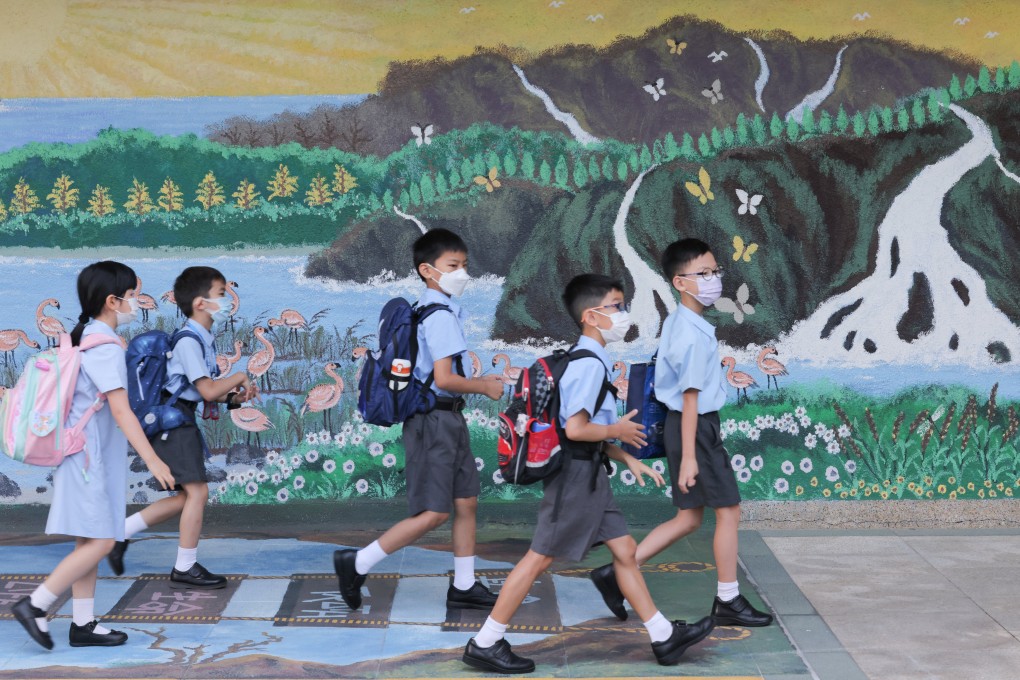Pity the children: Hong Kong counts the cost of months of virtual lessons amid the Covid pandemic, with no time to play, make friends
- Younger children struggling to adjust to school life, some teens have anxiety, emotional issues
- Experts concerned about youngsters’ greater use of electronic devices, rise in child suicides too

Hong Kong housewife Janice Lau is worried that the Covid-19 pandemic not only disrupted her children’s school life, but also affected their development as they lost out on interacting with classmates and playing with friends.
Her daughter Sophie, 10, who is in Primary Five, and son Matthew, six, in Primary One, attended only half-day classes or online lessons after the pandemic broke out in early 2020.
“Sophie’s Primary Two to Four went missing,” she said. “For many months, she attended virtual classes, which meant staring at a screen with 30 tiny boxes, each representing a classmate.”
Matthew, who has autism and developmental delays, is struggling to cope in the school setting.
“It has been quite difficult for him, and he’s had a lot of negative emotions to express when he came back from school every day,” Lau said.
For more than 800,000 children in Hong Kong, the pandemic meant spending a total of 10 months attending virtual lessons at home instead of being in school with classmates and teachers.
Experts are beginning to gauge the emotional and developmental impact on different groups, from preschoolers to primary-level children, and teenagers in secondary school.
Most agree that the disruption has taken a toll on Hong Kong’s children, and some need closer attention and help to cope even as the city eases its coronavirus restrictions.